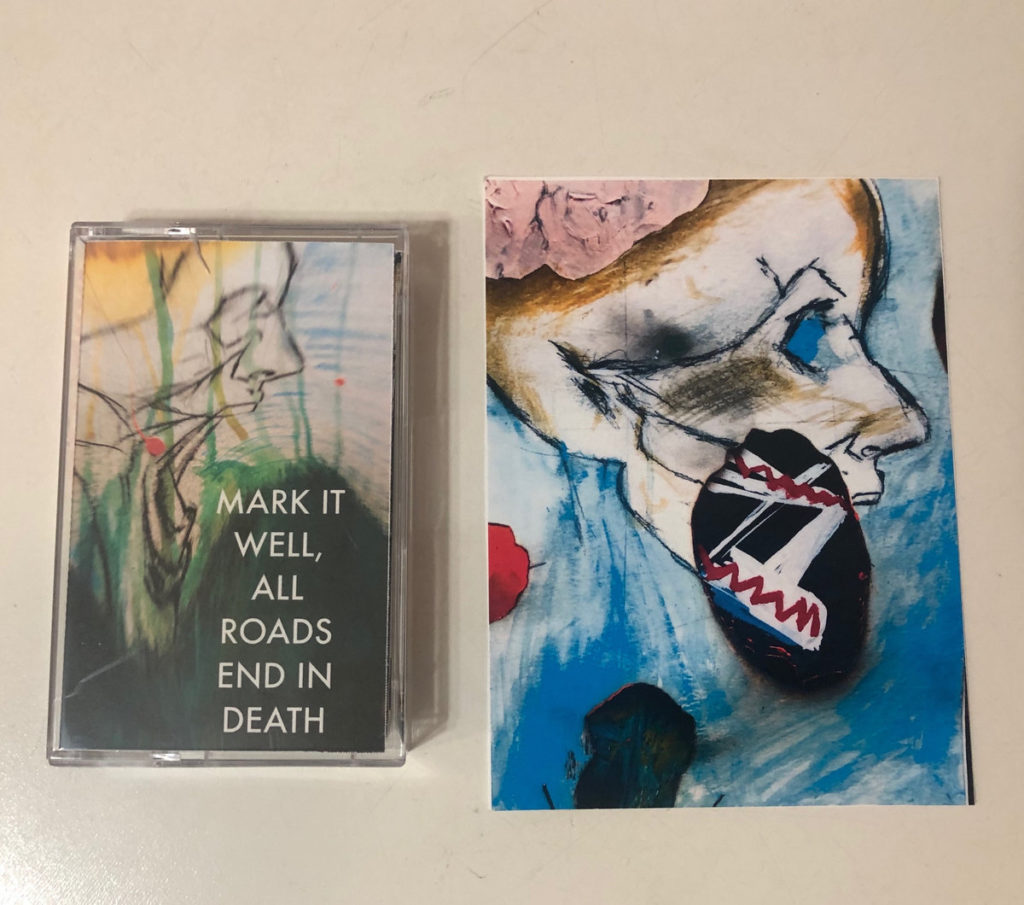1.13.20 by Ryan Masteller

This “meditation on life and death” (duh, look at the title) came together “by accident,” and sometimes that’s the best way things come together, especially meditations on life and death. Case in point: I’m sitting right here, drinking a beer, typing on my computer about music, and I happen to grab QOHELETH’s “Mark It Well, All Roads End in Death.” While playing it, I’m prompted to meditate on life and death, just like I’m supposed to. Accident? You betcha!
QOHELETH is nominally a noise rock outfit, but here, perhaps in thrall to the meditation, they are in experimental mode, finding their way around their instruments as if scrabbling for sustenance like woodland creatures on the forest floor, trying to stay out of claw-, beak-, or mawshot of predators. What does that mean? The instruments of “These Exquisitely Dressed Trees” don’t allow us easy purchase, and as such we’re left to fend for ourselves to perceive and attain the beauty hinted at by organic process. Compost and such; fertilizer. Giving of our bodies to sustain another. Sounds noble, but in actuality it’s just a philosophically garbed poop joke. We’re just scrabbling and eating and crapping until something meaningful happens in our lives. It is an existential crisis!
It’s here that I gave up the ghost and crossed over to the other plane. Well, OK, not really, but the melancholy uplift of the solitary piano and ambient haze of the room (Liz Harris eat your heart out) of “The Clearing at the End Is the Path,” over almost ten full minutes, surely felt like it. (Not to mention it’s a nod to Stephen King’s Dark Tower series, in which the crossing into death is referred to the exact same way.) It’s the perfect counterpoint to “These Exquisitely Dressed Trees,” a metaphysical response that elevates life beyond the baseness of our animalistic tendencies. The transcendental drift of “The Clearing” encapsulates perfectly the duality of the life/death divide.
Also, here’s a spooky thought: these two pieces were recorded over a decade apart! How on earth did they find each other?
Accident.* Of course.
“Cassette with original art by Caiden Withey. Includes mini print with liner notes. Hand-drawn art and text on the tape itself. Limited to 20 copies.” On Philip K. Discs!
*Eh, not really.
